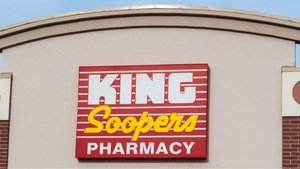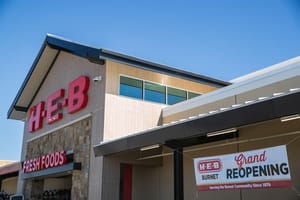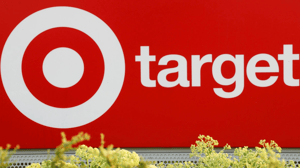Private brands need a digital strategy: reportPrivate brands need a digital strategy: report
A survey reveals that many grocers are unhappy with store brand performance
February 22, 2023

Many grocers are impacting private label category growth by not taking full advantage of the digital marketing opportunities, said Grocery Doppio, a Jacksonville, Fla.-based research and insights firm, in its January “State of Digital Grocery Marketing: Unlocking Private Brand Growth” report.
In the survey, 83% of supermarket executives indicated that improving private brand performance is a C-level priority, and 91% have a clearly defined private brand strategy and roadmap. However, just 38% are satisfied with their private brand performance and only 52% agreed that their private brand performance is better than the competition.
Raising product awareness through digital marketing is a way to improve performance, Grocery Doppio said, but the strategies for private brands often differ from those of national brands.
While 97% of grocers are currently using marketing e-mails for national brands, only 32% do so for private brands. In addition, 95% of grocers are using banner advertisements on internal channels for national brands, compared to just 16% for store brands, and 94% are leveraging transaction e-mails for national brands, versus 35% for store brands.
The top digital marketing tool for private brands, digital circulars, is being leveraged by just 42% of grocers, compared to 86% for national brands. Forty-one percent of grocers, meanwhile, are using internal web or app search results for private brand marketing, versus 91% for national brands.
In addition, just 2% of grocers are using in-store promotion screens to spotlight store brands, versus 57% for national brands.
“Raising awareness at the point of decision could greatly increase private brand sales,” Grocery Doppio said.
Grocery Doppio added, however, that grocers are in the difficult position of building their private brands to compete with the national brands, while continuing to foster a mutually beneficial relationship with their trade partners.
“In this new reality, grocers cannot rely on traditional marketing approaches, but instead need to develop digitally powered marketing strategies designed to connect with customers when, where, and how they want to shop,” Grocery Doppio said.
Yet utilizing digital marketing vehicles can be difficult, Grocery Doppio said, noting that the top private brand challenges include limited in-house business resources, inadequate budgets, limited software and solutions, lack of IT resources and skills, and lack of relevant content to personalize.
Among digital marketing capabilities that they rated as either important or very important, 78% of grocers pointed to the quality of digital assets; 76% named the type of digital asset used, such as help guides, recipes, and reviews; and 69% said the number of digital assets, including images and descriptions.
“Quality and quantity are two sides of the digital marketing success coin,” Grocery Doppio said. “Sheer volume is not enough, nor are the right asset and message. Grocers need to develop quality digital assets and distribute them at scale through all available challenges if they are going to get the most from their efforts.”
In rating their company’s digital endeavors, 46% of grocers were satisfied with asset quality; 44% of were satisfied with the type of asset; 32% were satisfied with the number of assets; and just 17% were satisfied with the number of dedicated marketing resources.
Moving forward, 85% of grocers said they plan to increase the number of private brand digital assets; 83% intend to expand their private brand digital marketing campaigns; and 77% plan to increase the number of private brand SKUs sold online.
While grocers report that they will increase their private brand marketing budgets by an average of 6% in 2023, 63% indicate that they have no plans to grow their spend.
“Grocers must increase the quantity of their private brand digital marketing assets if they are going to successfully increase private label sales,” Grocery Doppio said.
Indeed, Grocery Doppio added that it takes more than a quality product to win at the shelf.
“It requires significant digital investment to ensure consumers are aware of the product line, its benefits, and how it compares with the established national brands they have relied upon for years,” Grocery Doppio said.
The survey was conducted in the fourth quarter of 2022 with 117 respondents. Seventy-seven percent of respondents were at the director level or above; 83% were from a business line, such as marketing, digital, or omnichannel; and 13% were from IT.
The report was developed in a partnership with Arlington, Va.-based FMI—The Food Industry Association and Wynshop, a Miami-based digital commerce platform provider.
About the Author
You May Also Like






